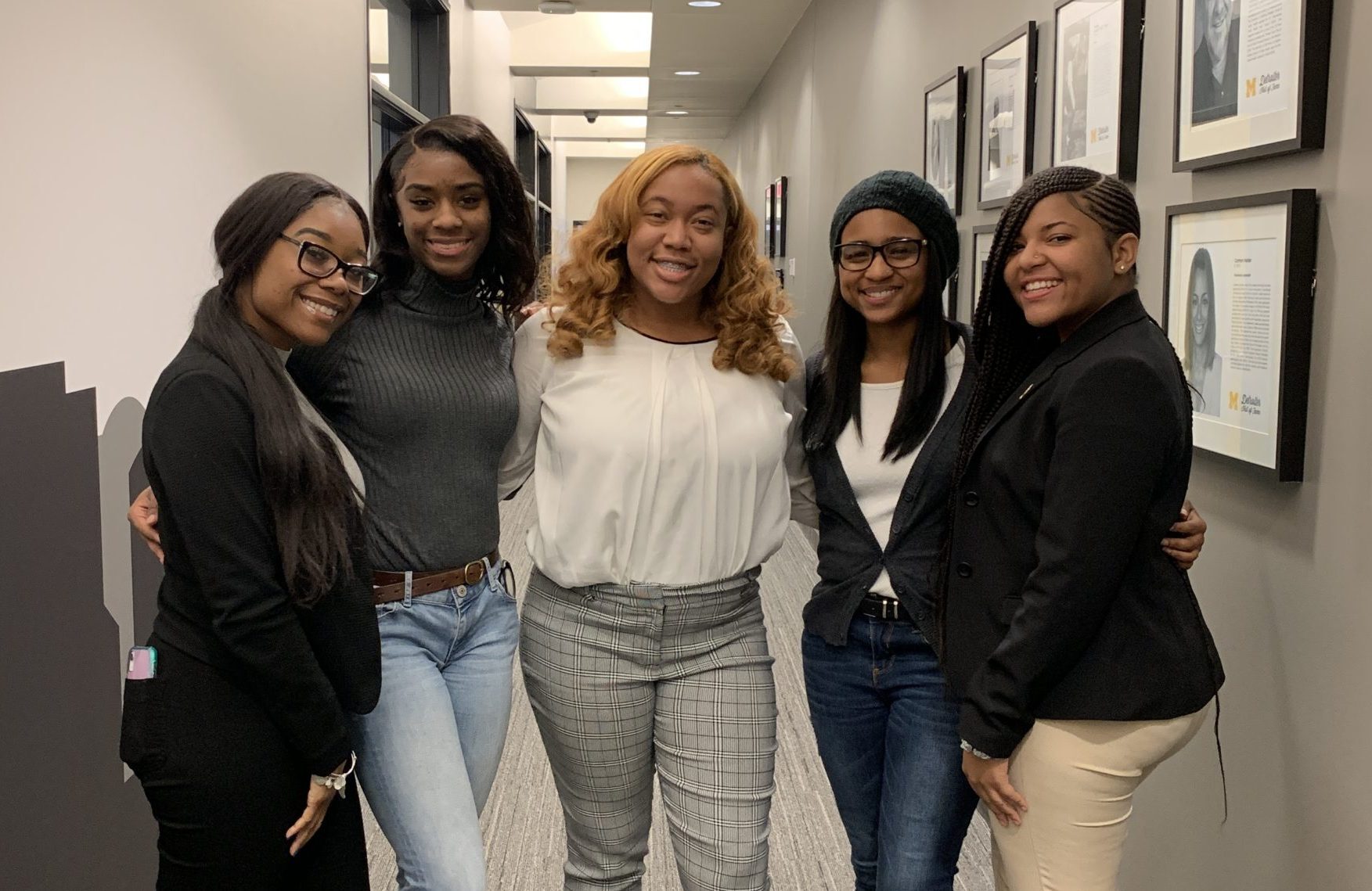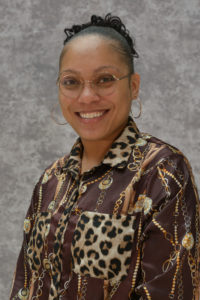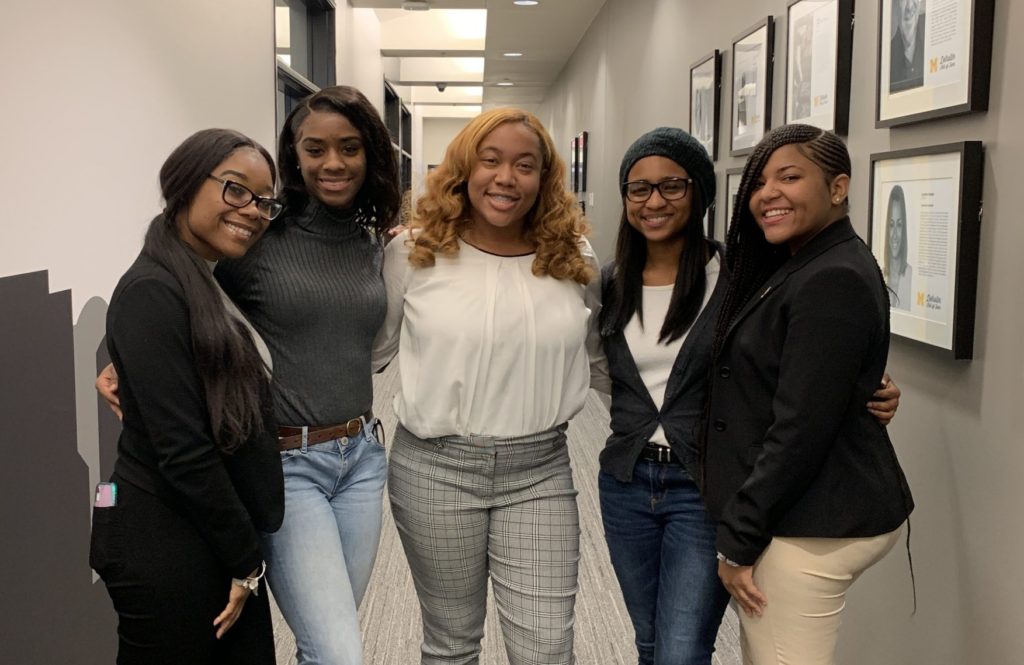Source: Michigan News

Janice Smith, Melanie Wells, Kiara Johnson, Nennaya Lewis, and Bailey Bellafant are founders of Girls Giving Back Detroit, a nonprofit organization empowering underprivileged youth in Detroit through service projects, workshops, and mentorship.

The motto of optiMize encourages students to pursue projects that can change the world.
More Info
Candace Cavazos and Kalyn Sanderfer are two of many student entrepreneurs and activists who have had to adapt after the pandemic caused their social impact projects to go virtual.
The women, founders of Bloom Bodies College Access, were awarded $8,000 through optiMize, a student-led social impact project at the University of Michigan, this spring to fund their efforts to support first-generation college students.

Kalyn Sanderfer
Cavazos and Sanderfer have brought their open mic nights online, using social media platforms to livestream performances. Now they are addressing the social needs of Detroit communities frustrated by racial injustice. The women said that their ability to pivot their resources this summer was due to the flexibility and support of optiMize organizers.
With in-person events cancelled, student teams are using funds awarded through optiMize to grow their organizations and design new summer goals. Many teams are now helping other students be ready to go back to school in the fall.
Girls Giving Back Detroit, an organization that builds community through service projects, is creating an online summer program to help middle and high school students retain mathematics and reading skills.
Neighborhood United, a team providing college mentorship to children in metro Detroit through sports programming, recently established a board of current and prospective students to discuss the real college experience.
optiMize, encourages students to form teams, develop their passion projects into prototypes, then pitch for funding. Over the summer, finalists use the funding to meet goals and grow their projects. This spring, 37 optiMize teams shared $350,000 in funding to develop social impact solutions under the motto, “Why not Me?”
This summer marks the second year that teams focused on social impact in Detroit have been provided additional community-led resources. Funded by the U-M Provost’s Office, these student teams work with the support of Detroit-based leaders and stakeholders.

optiMize poster announcing the Detroit Track.
“In addition to making a direct impact with their projects, students are helping to build crucial relationships between U-M and community leaders in the city,” optiMize co-founder Jeff Sorensen said. “No one at U-M is better positioned to address challenges in Detroit than the students who understand them deeply from their own lived experiences.”
Prior to the pandemic outbreak, student teams attended additional mentorship sessions at the U-M Detroit Center; other “field trips” led by Detroit-based mentors helped foster student engagement with the city. This summer, mentors are accessible through virtual calls.
Jeni Olney, mentor and associate director for Social Innovation at optiMize, said: “For our Detroit-Track teams, there is a deep-rooted and often relentless commitment they have to themselves and their communities to share knowledge and resources and create impact together.”
Detroit projects include:
- Bloom Bodies College Access: An educational program in Detroit by first-gen college graduates from the inner city centering around college access, social justice, and literary/performing arts.
- Girls Giving Back Detroit: Supporting youth throughout the city of Detroit with mentorship, education, and empowerment.
- Maxey Real Estate Investments: Revitalizing homes and providing housing to Detroit residents through buying, investing in, and leasing vacant properties.
- My Voice, My Vote, My Future: Informing citizens about the importance of engaging in local politics and their available options for voting to increase voter turnout.
- Neighborhood United: Summer basketball program for students in third through tenth grade in Metro Detroit providing group mentoring, guest speakers, and field trips.
Come back tomorrow: Bloom Bodies founders Candace Cavazos and Kalyn Sanderfer are working to support first-generation students. OptiMize teams not only provided them the resources to make their goals tangible but also the flexibility to help the community address new needs.


